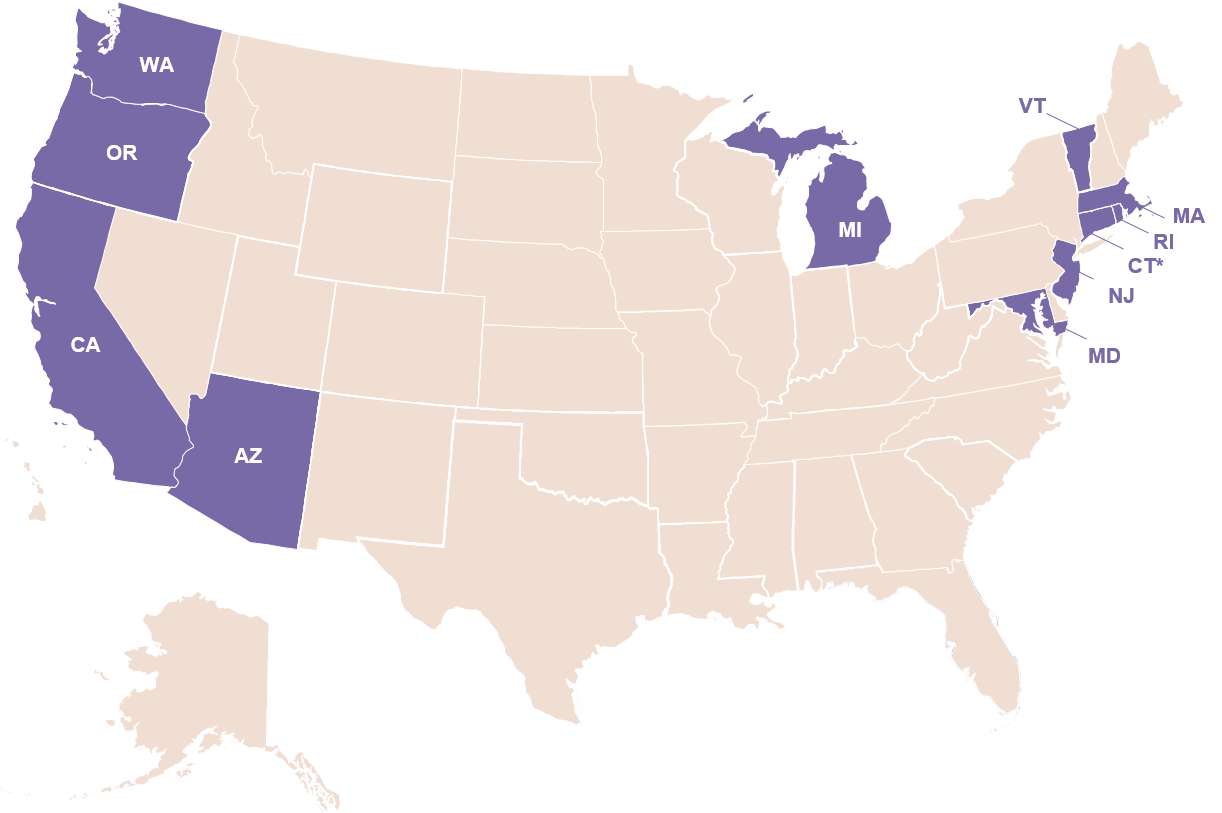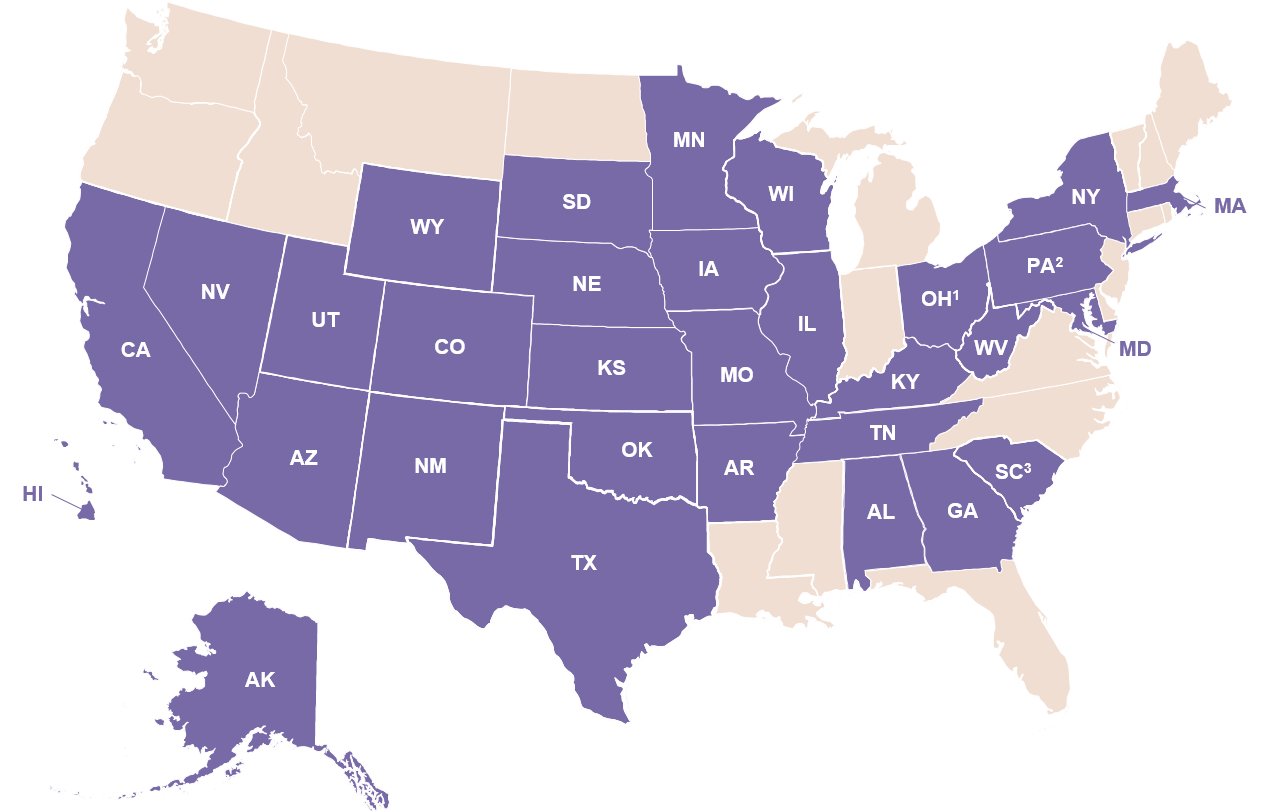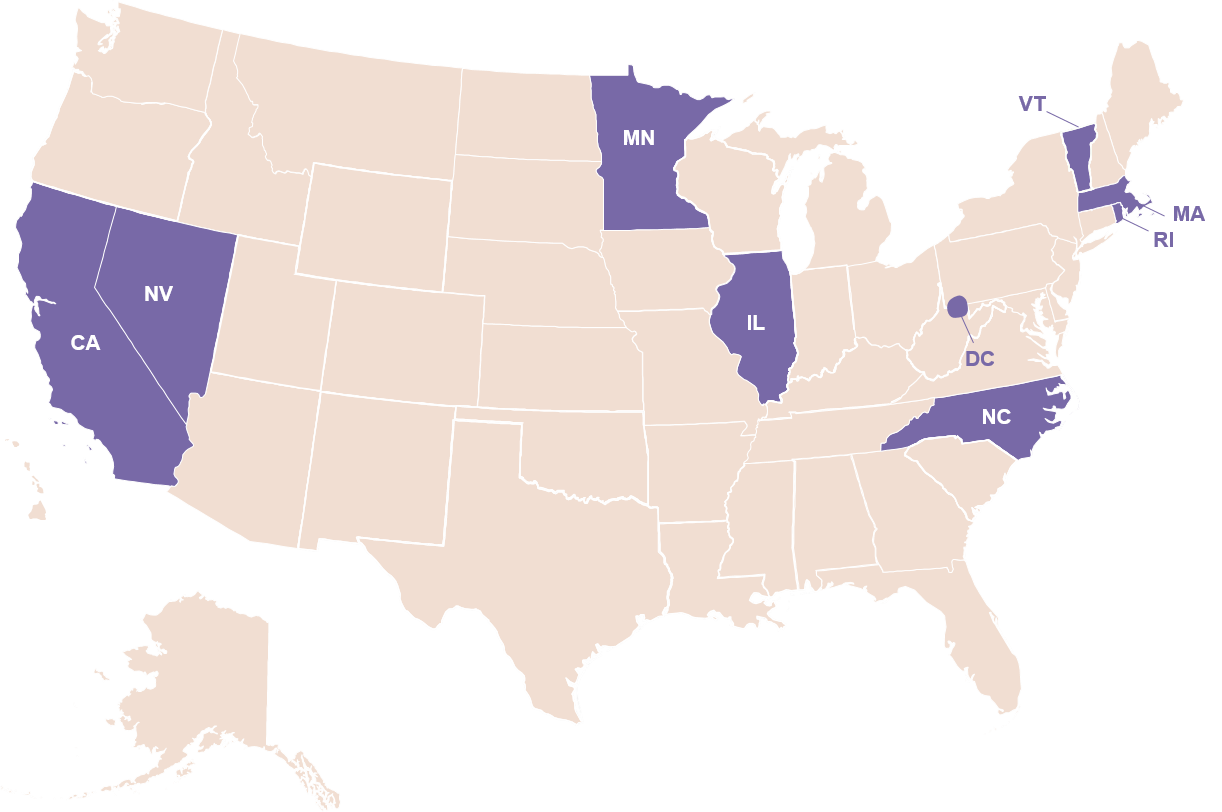'Am I Required to Give Employees Time Off for That?'

There is an ever-expanding landscape of federal, state, and local laws that require employers to provide leave to employees. To help you navigate your leave obligations, here's an overview of some of the most commonly required types of leave.
Sick Leave:
Currently, the following jurisdictions require (or will soon require) employers to provide sick leave to employees:
States:

Other Jurisdictions:
- Dallas and San Antonio, Texas (effective August 1, 2019 for employers with more than five employees, but August 1, 2021 for smaller employers). Note: On July 15, business groups filed a lawsuit attempting to block the San Antonio ordinance. The city and the business groups have since agreed to delay the effective date until December 1, 2019 while the lawsuit is litigated. A judge is scheduled to rule on the agreed upon delay this week.
- Update: A separate lawsuit has been filed to try and block the Dallas ordinance as well. On August 1, 2019 the city announced that, despite the lawsuit, its ordinance is now in effect for employers with six or more employees. However, the city says it will delay enforcing all but the anti-retaliation provision until April 1, 2020. We will continue to monitor and report updates on the status of the law.
- Chicago
- Cook County, Illinois
- District of Columbia
- Cities in California: Berkeley, Emeryville, Oakland, San Francisco, Santa Monica, San Diego, Long Beach (hotels with 100 or more rooms), and Los Angeles
- Cities in Washington: Seattle, Tacoma, and SeaTac (hospitality and transportation industries)
- Cities in Minnesota: Duluth (effective January 1, 2020), Minneapolis and St. Paul
- Montgomery County, Maryland
- New York City
- Philadelphia
- Westchester County, New York
Generally, these laws address whether the leave is paid or unpaid, the circumstances in which employees can take leave, how much time they can take per year, how the leave accrues, and whether the time carries over from year to year. Most paid sick leave laws permit employees to take leave to care for themselves or a family member.
Family and Medical Leave:
The federal Family and Medical Leave Act (FMLA) requires employers with 50 or more employees to provide up to 12 weeks of unpaid leave for an employee's own serious health condition, a family member's serious health condition, the birth or adoption of a child, or certain family military situations. Several states have enacted their own family and medical leave laws, some of which cover smaller employers and/or permit leave under additional circumstances.
Paid Family Leave:
A growing number of jurisdictions are providing wage-replacement benefits when employees take leave for certain family or medical reasons. These paid family leave (PFL) programs are typically funded through payroll deductions. Some of these laws have express job-protection provisions that require employees returning from PFL to be reinstated to the position they held before the start of leave, or to a comparable/equivalent position. In other states, the PFL programs may only provide a financial benefit rather than a leave entitlement with job protection. However, even in states without express job-protection provisions for PFL, employees may be protected under another federal, state, or local law.
Leave as a Reasonable Accommodation:
Employers with 15 or more employees may be required to provide time off as a reasonable accommodation for an employee's disability under the Americans with Disabilities Act, or for their sincerely held religious beliefs and practices under Title VII of the Civil Rights Act. Generally, a reasonable accommodation is required unless it would impose an undue hardship on the business. Some states have similar requirements that apply to smaller employers and/or require accommodations in additional circumstances.
Pregnancy-Related Leave:
Whether an employer is required to provide leave for pregnancy-related conditions may depend on their size, location, and how the employer treats other employees similar in their ability or inability to work.
- FMLA. The FMLA requires covered employers to provide female employees with job protected leave for incapacity due to pregnancy, prenatal care, or their own serious health condition following the birth of the child. Eligible employees (mothers or fathers) may also use all or part of their FMLA entitlement to bond with their baby after childbirth or for a child's serious health condition.
- State requirements. Several states have family and medical leave laws that cover employers with fewer than 50 employees. Additionally, some states have pregnancy leave laws, some of which require employers to provide reasonable accommodations for pregnant employees, which may include a leave of absence. Check your state law to ensure compliance.
- EEOC guidance. According to the Equal Employment Opportunity Commission (EEOC), an employer is generally required to treat a pregnant worker the same as other employees who are similar in their ability or inability to work. This means that if an employer provides leave for other temporarily disabled employees, it may be required to provide leave to pregnant employees as well.
Note: While a typical pregnancy won't qualify as a disability under the ADA, complications during the pregnancy or childbirth may result in a disability requiring a reasonable accommodation, such as leave, unless it would impose an undue hardship.
Military Leave:
Under federal and many state laws, employers must allow employees to take time off to serve in the military or participate in military training. Employees are generally entitled to five years of leave for military service and an unlimited amount of leave for military training and drills. At the end of the leave, the employer must generally reinstate the employee as if they had not been absent. Veterans may also be entitled to leave in certain jurisdictions.
Voting Leave:
The following states have at least some form of requirement for employers to provide time off for employees to vote:

1 - Ohio employers can't discharge employees for taking a reasonable amount of time to vote.
2 - Pennsylvania employers can't prevent employees from voting in any election.
3 - South Carolina employers can't discharge employees for exercising their political rights.
Some of the states listed above, such as Nebraska, Ohio, and Wisconsin, also provide leave for election officials. A few additional states, such as Delaware and Virginia, provide election-official leave only.
Jury Duty Leave:
Under federal and most state laws, employers must provide time off for jury duty and may not discipline or otherwise retaliate against employees who serve on a jury. Some states require employers to pay employees for jury service, which in some cases, can be the difference between payments received for jury service and the employee's regular wages.
School Activities Leave:
Several states have adopted laws that grant employees time off to tend to certain routine family matters, such as school activities or parent-teacher conferences. Generally, these laws provide eligible employees with a certain number of hours of leave annually, per month, or per school year. Jurisdictions that require such leave include:

Three other states—Louisiana, Oregon, and Tennessee—encourage but do not require employers to provide such leave. For instance, Louisiana's law states that employers may offer employees up to 16 hours of leave for school-related purposes.
All-Purpose Leave:
Both Maine and Nevada have recently enacted laws that require employers to provide their employees with paid time off that can be used for any reason. In Maine, the requirement will apply to employers with more than 10 employees and take effect January 1, 2021. In Nevada, the requirement will apply to employers with 50 or more employees and take effect January 1, 2020. This is an emerging trend, so continue to watch for developments in this area.
Organ/Bone Marrow/Blood Donation Leave:
At least 12 states (Arkansas, California, Connecticut, Hawaii, Illinois, Louisiana, Maine, Maryland, Minnesota, New York, Oregon, and Wisconsin) have enacted laws that allow employees to take leave to donate an organ, bone marrow, or blood. In some states, the leave must be paid. Some states, including South Carolina, don't have express time off requirements, but they prohibit employers from retaliating against an employee for requesting or taking this type of leave.
Crime Victims Leave:
In some states, if an employee or their covered family member is a victim of a crime or domestic violence, the employee may be entitled to time off to attend legal and court proceedings, obtain an order of protection, seek medical treatment, or receive counseling services.
Emergency Response Leave:
In some states, employees who are volunteer firefighters or emergency rescue workers are entitled to leave when responding to an emergency call prior to reporting to work, or in some cases, during work hours. Generally, these laws require the employee to notify the company that they've been dispatched to an emergency as soon as possible. The employee may also be required to provide proof that they responded to an emergency call.
Conclusion:
Employers must comply with all applicable federal, state, and local leave requirements, some of which are outlined above. Because this isn't a complete list, be sure to check your applicable law to ensure compliance and develop written policies addressing leave entitlements.



